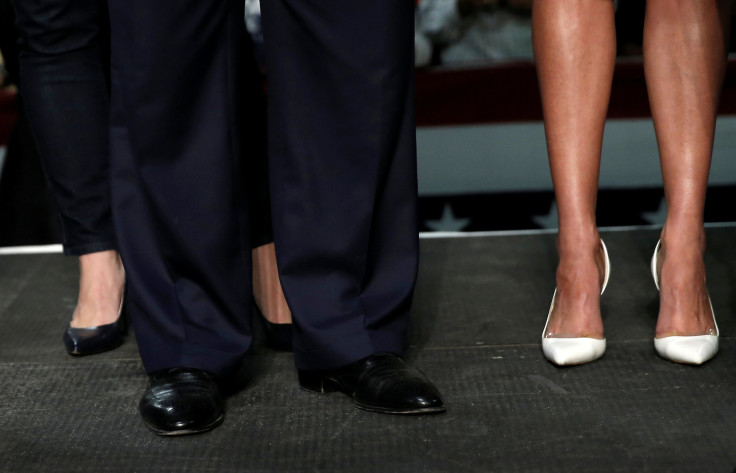Are High Heels Bad? Female Dress Code Rule Deemed Sexist Could Be Banned In UK

The U.K. could implement a ban on a mandatory work-wear staple for women – high heels.
Members of British Parliament met Monday to discuss banning the common workplace rule that required women to wear the footwear, following a petition that was released and circulated by Nicola Thorp, the Associated Press reported. Thorp first released the petition after she was sent home from work without pay in 2015 for wearing flat shoes to her temp job as a receptionist at Portico, a London finance firm.
Portico had maintained a strict dress code rule for female employees that required them to wear “regularly re-applied makeup” and heels that were two to four inches high. Thorp sent out the petition online claiming such workplace codes were “sexist.” The petition received thousands of signatures and went to Parliament.
Last year, Portico announced that it would change its dress requirements to allow a more “gender-neutral dress code.” Flat shoes would be permitted, should workers desire to wear them.
British lawmakers were expected to discuss whether the mandatory footwear rule should be enforced.
“Twenty years ago, women weren’t allowed to wear trousers in the same role that I’m doing now,” Thorp told the BBC at the time. “And it’s only because some women spoke up about that and said, ‘We feel like we have a right to wear trousers,’ that that’s changed.”
Government officials reasoned that the law required employers to “make equivalent requirements for men and women” and that “Employers should not be discriminating against women in what they require them to wear,” the government said, according to the AP.
Members of Parliament said they would support Thorp once the petition had received more than 100,000 signatures from supporters. “The idea that in 2016 a woman can be sent home from a professional job for daring to not wear high heels is as preposterous as it is archaic,” Parliament member Tulip Siddiq had told the Telegraph.
© Copyright IBTimes 2024. All rights reserved.






















